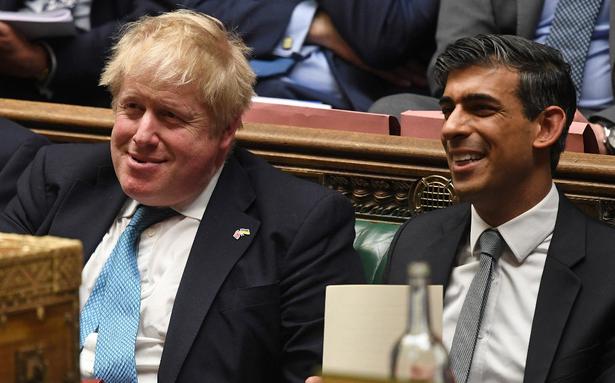Britain is facing what economists say is the biggest drop in living standards since the mid-1950s
Britain is facing what economists say is the biggest drop in living standards since the mid-1950s
British consumer prices rose at their fastest pace in 30 years last month, fueled by rising household energy and fuel costs – the latest grim figures amid rising global inflation.
Inflation in the UK accelerated to 7% in the 12 months to March, the highest annual rate since March 1992, the Office for National Statistics said on Wednesday.
Britain is facing what economists say is the biggest fall in living standards since the mid-1950s, as soaring energy costs, soaring food prices and tax increases overshadow higher wages.
People around the world are feeling the pressure of inflation as demand recovered quickly from the COVID-19 pandemic and Russia’s war in Ukraine further pushed up energy costs and put pressure on supply chains.
In the United States, consumer prices rose 8.5% last month from a year earlier, the fastest pace in more than 40 years, the Labor Department said on Tuesday. In the 19 European countries that use the euro, inflation rose to 7.5% last month, the fifth consecutive month that it has hit a record high.
In the UK, household disposable income is expected to fall by 2.2% this year, adjusted for inflation, according to the government’s independent budget adviser.
Household natural gas prices rose 28.3% and electricity prices 19.2% last year as the global economy recovered from the COVID-19 pandemic and global energy demand increased.
Prices will continue to rise after Britain’s energy regulator approved a 54 per cent increase in gas and electricity bills for millions of homes, which came into effect in April.
Transportation costs are also rising, with the cost of gasoline and diesel fuel rising an average of 30.7% over the past year, the largest increase since current records began in January 1989, the Office for National Statistics said.
Countries are scrambling to ease the pain of rising food, fuel and other costs by raising interest rates. The Bank of England has raised interest rates three times since December and the US Federal Reserve raised its benchmark short-term interest rate last month and is expected to raise further, potentially aggressively.
The European Central Bank, meanwhile, has accelerated its exit from stimulus efforts to fight inflation but has taken no more drastic steps. It meets again on Thursday.



